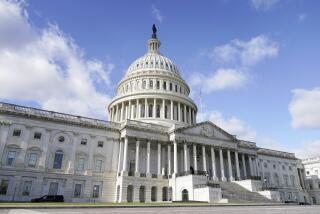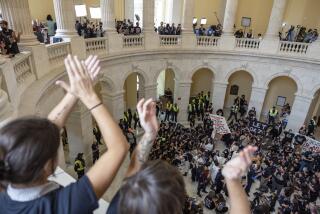Common-sense advice for Congress
With Congress lurching toward adjournment after a year rich in drama but poor in accomplishment, lawmakers have to decide whether to renew a handful of tax and spending measures that could have significant effects on the economy. Their job is complicated by the uncertain state of the recovery; although the housing market remains grim, there are hints in other sectors that the economy is gaining steam. We think it’s too early yet for Congress to stop trying to stimulate growth, but Washington still needs to be smart about how it does so. And some of the proposals coming out of the White House and Capitol Hill don’t pass that test.
The signs of vigor in the economy include surprisingly strong sales on Black Friday, record-setting online orders on Cyber Monday, strong auto sales in November, a slow but steady increase in construction, a jump in manufacturing orders, continued growth in private-sector payrolls and an unexpectedly large drop in the unemployment rate. These data aren’t as encouraging as they seem, however. Sales in November leading up to the holiday weekend were slower than last year, suggesting that many shoppers on Black Friday and Cyber Monday were looking for bargains on items they’d put off buying, not increasing their spending on gifts. And the improvement in the unemployment rate resulted largely from people dropping out of the job hunt, not from companies going on a hiring binge.
Against this backdrop, Congress has to decide by year’s end whether to continue providing extended unemployment benefits to those who go more than six months without finding a job, and to extend a temporary reduction in the payroll tax paid by employees. Both of these measures should have been handled within the context of a long-term deficit- and debt-reduction deal that overhauled the tax code, put entitlements on a more sustainable path and continued extended unemployment benefits until the jobless rate hit a specific target. But months of talks led nowhere. As a result, instead of a long-term solution, lawmakers are left quibbling over Band-Aids.
The Senate devoted much of its attention last week to renewing the payroll tax cut, which would save middle-class families about $1,000 in 2012. Naturally, Republicans and Democrats found a way to fight over a tax cut both sides profess to like, with Republicans backing a simple renewal and Democrats lining up behind President Obama’s call for a significantly deeper cut in 2012.
Each side filibustered the other’s proposal, and we can all be thankful for that. There’s little evidence to support the idea that temporarily cutting the payroll taxes paid by employers, as Obama proposes, would increase hiring. Instead, it’s more likely to reward companies that were planning to expand anyway — a giveaway Washington can’t afford. Nor does it make sense to pay for a temporary payroll tax cut with a permanent surtax on millionaires. Not that the Republicans had a better idea for financing the tax cut. Rather than coming up with a new mechanism, they proposed the same cuts in federal jobs and wages and reductions in Medicare and unemployment benefits for the wealthy that were floated as part of a larger deficit-reduction deal. By taking the easiest route to achieve savings, they’d make the larger and more important work that much harder.
The impasse should prod lawmakers to strike a deal on a simple renewal of the payroll tax cut for employees, combined with a continuation of extended unemployment benefits. The former is a proven stimulus, and the latter should be a no-brainer. Until the economy grows faster, there simply will be too few openings to provide jobs even for the most eager workers.
More to Read
A cure for the common opinion
Get thought-provoking perspectives with our weekly newsletter.
You may occasionally receive promotional content from the Los Angeles Times.






